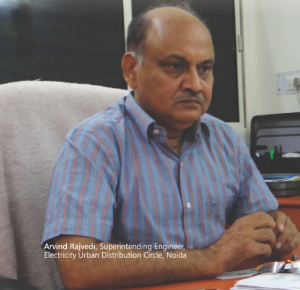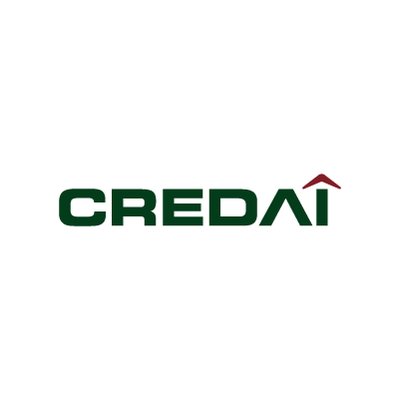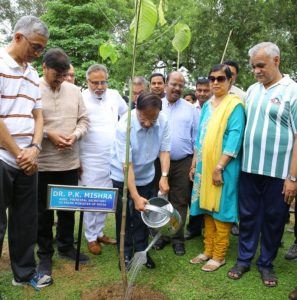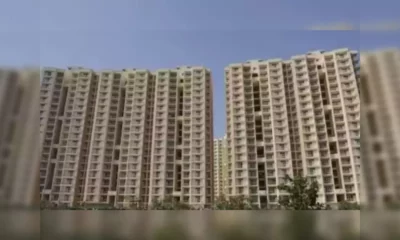Top Stories
Noida power authority on metering woes




Q) There is lot of resentment related to metering issues in apartments and group housing developed by builders. What is the core issue and have some steps been taken to settle it?
Arvind Rajvedi : Consumers of these multi-storey buildings are not our direct consumers. We have contractual obligation to supply power to these complexes at a single point. Beyond this, it is the responsibility of the developer to supply power to its occupant. Since developers are also supplying back-up power and are providing various amenities to these occupants on a mutual contract, we are trying to look into how we can help
address these issues. There was a public hearing also on May 5 regarding these issues. On the hearing day, we had presence of various RWAs and consumer bodies. During the proceedings, Directors from UPERC and UPPCL were also present to take this matter to a logical end. We are hopeful that a solution will be found very soon.
Q) There were issues related to high tariff being charged from customers. What is your view?
AR: As far as electricity supply by PWNL is concerned, our tariff order is very clear. We have already fixed a tariff on which consumers are to be charged. There is a window with an addition of up to (not more than) 10 per cent to cover T&D losses. This is a clear guideline. Also, not more than 10 per cent means anything up to 10 per cent. When you read the UP Supply Code, there is clear regulation for such consumers regarding “collection of the cost for consumption of power. On no-profit or no-loss basis (i.e. sharing of expenses of consumption of electricity)” under UP Supply Code Para 4.46. To arrive at a no-profit, no-loss proposition, the window of up to 10 per cent is available.
Q) So, how can developers arrive at the actual percentage of T&D loss?
AR: This can be arrived simply by energy audit. Power supplied in the billing period to the complex as metered in UPPCL Meter minus total consumption recorded in the consumer meters and common meters during billing period is T&D loss. In such complexes, the T&D losses should be much less than 10 per cent and this window is sufficient enough to cover this loss.
Q) How will you regulate back-up tariff and maintenance charge?
AR: I think, regulating these charges is beyond the scope of UPERC or UPPCL. These charges depend solely upon amenities available in the complex. You can find same square feet flat in some complex cheaper or costlier than the others.
Q) Coming to the pre-paid metering, is it a must that a resident consumer has to opt for this or does he have the flexibility to choose the type of plan-pre-paid or post-paid?
AR: Prepaid or post-paid electricity should be the choice of consumer. In case of pre-paid electricity, consumers are not required to deposit security deposit and in case of post-paid they need to deposit security deposit as per the UP Supply Code.
Q) Another very important aspect is related to transparency. Consumers residing in group housing complex don’t get any details of power consumption and are not clear how they are being charged under various heads. What do you have to say on that?
AR: Electricity bill is not only a detailed statement against which consumer pays for the services rendered, it is a tool of transparency in dealing and consumers get insight of their monthly consumption through bills. This also helps in energy audit; demand forecast and in bringing total transparency with customers. Billing details are of great importance while replacing a faulty meter or in doing average billing during the period when consumer meter is defective and under process of replacement.
Q) What about energy meters? There are many grievances by consumers about substandard meters?
AR: There are ample regulations and safeguards issued by Bureau of Indian Standards through standardisation guidelines for static electricity meters, prepayment meters etc. All prepayment type meters i.e. with inbuilt tariff computation should adhere to IS: 15884 standards and meters with tariff computation done outside come under IS:13779 standards as defined by BIS. I think this is a clear guideline. Such irregularities are of grave nature and have been brought to the notice of the UPERC and UPPCL by knowledgeable consumers residing in these complexes. We have taken notice of it for further action.
Q) Do you have some message for real estate developers regarding metering and billing?
AR: At UPPCL, we are proconsumer and strive to deliver our services in a transparent and efficient manner. My suggestion to the real estate developers would be to adhere strictly to the applicable regulations of UP Electricity Supply Code, metering regulations by the Central Electricity Authority and the guidelines issued by the Bureau of Indian Standards regarding static meters and prepayment meters. Any metering and billing system being adopted by developers should offer transparency, convenience and ease of use. The system should be able to provide energy audit reports and should be capable of measuring and monitoring of each energy unit with details.
-



 News3 weeks ago
News3 weeks agoKW Delhi 6 Mall Onboards New Brands
-



 News3 weeks ago
News3 weeks agoManasum Senior Living Launches IKIGAI GOA, A Senior Living Community in North Goa, in collaboration with Prescon Homes
-



 News2 weeks ago
News2 weeks agoGodrej Properties Sells Rs 3k cr+ Homes of Godrej Zenith, Gurugram, within 3 days
-



 News3 weeks ago
News3 weeks agoBridging India Divide: Top 5 Tier- 2 Cities to Focus On
-



 News3 weeks ago
News3 weeks agoCommercial Realty Gets Tech Savvy: Fast Construction, Enhanced Convenience
-



 News3 weeks ago
News3 weeks agoMultipoint Connection – A Definite Boon
-



 News2 weeks ago
News2 weeks agoRBI’s Status Quo on Key Policy Rates to Help Maintain the Real Estate Growth Momentum, Say Industry Stalwarts
-



 News3 weeks ago
News3 weeks agoSacred Cities See a Retail Boom as Spiritual Tourism Surge: CBRE Report























